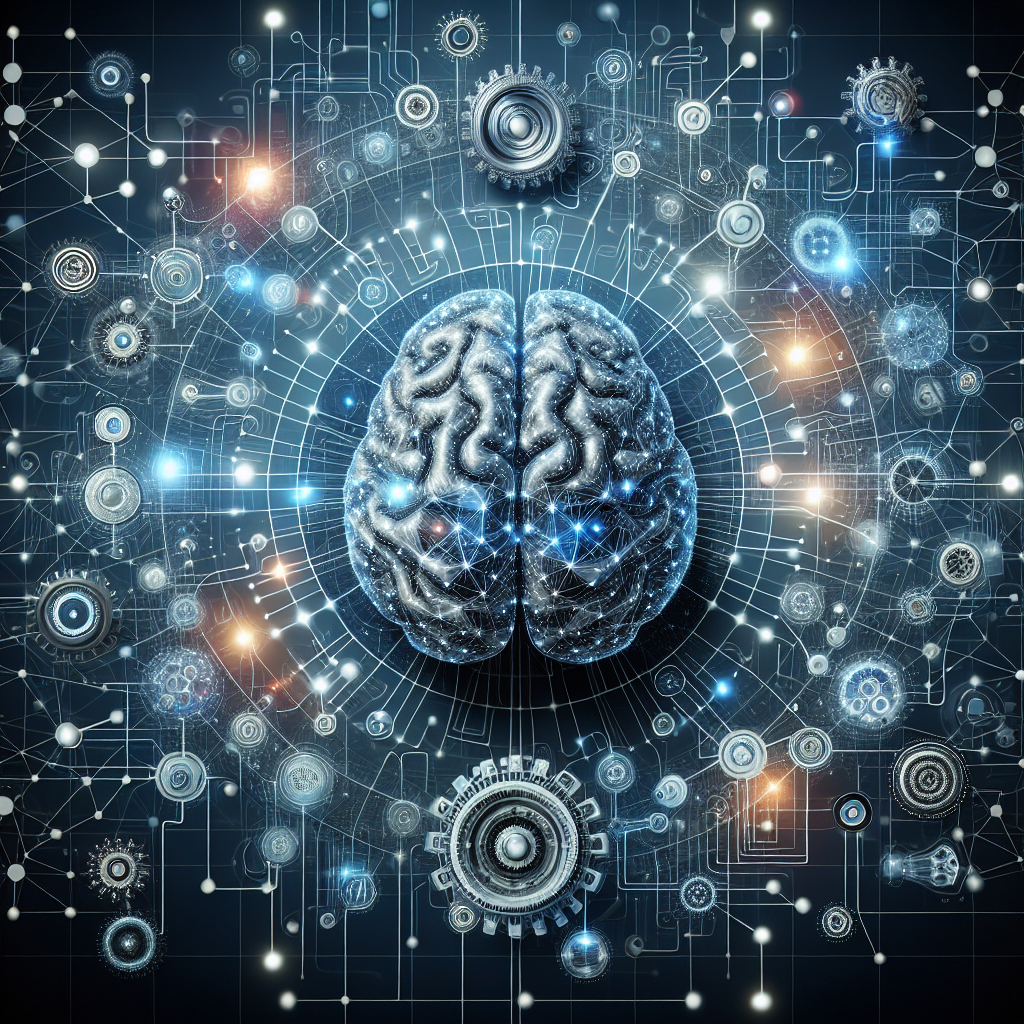Artificial General Intelligence (AGI) is an exciting and rapidly evolving field of research that seeks to create machines capable of performing any intellectual task that a human can do. Unlike narrow AI systems, which are designed for specific tasks such as playing chess or recognizing speech, AGI aims to replicate the full range of human cognitive abilities. This has the potential to revolutionize industries, improve quality of life, and even change the course of human history. In this article, we will explore the concept of AGI, its current state of development, the benefits it can bring, and the challenges it presents. We will also address some common questions and concerns surrounding AGI.
What is Artificial General Intelligence?
Artificial General Intelligence refers to machines that possess the ability to understand, learn, and apply knowledge across a wide range of tasks. These systems are not limited to specific domains or tasks like narrow AI systems, but instead are designed to exhibit human-like intelligence in a variety of contexts. AGI systems can reason, plan, solve problems, understand natural language, and interact with the world in a way that is indistinguishable from human intelligence.
The development of AGI has long been a goal of the field of artificial intelligence, and researchers have made significant progress in recent years. Breakthroughs in machine learning, neural networks, and computational power have brought us closer to achieving AGI than ever before. However, there are still many challenges to overcome before we can create truly intelligent machines.
Benefits of Artificial General Intelligence
The potential benefits of AGI are vast and diverse. These systems have the ability to revolutionize industries, improve quality of life, and solve some of the most pressing challenges facing humanity. Here are some of the key benefits of AGI:
1. Increased productivity: AGI systems have the potential to automate a wide range of tasks, leading to increased efficiency and productivity in various industries. This can free up human workers to focus on more creative and strategic tasks, while machines handle routine and repetitive work.
2. Improved decision-making: AGI systems can analyze vast amounts of data, identify patterns, and make predictions with a high degree of accuracy. This can help businesses make better decisions, optimize processes, and drive innovation.
3. Enhanced healthcare: AGI has the potential to revolutionize healthcare by enabling more accurate diagnoses, personalized treatment plans, and improved patient outcomes. These systems can analyze medical images, genetic data, and patient records to provide clinicians with invaluable insights.
4. Environmental sustainability: AGI can help address some of the biggest environmental challenges facing the planet, such as climate change and biodiversity loss. These systems can optimize energy use, design more efficient transportation systems, and develop sustainable agriculture practices.
Challenges of Artificial General Intelligence
While the benefits of AGI are immense, there are also significant challenges and risks associated with the development of intelligent machines. Some of the key challenges include:
1. Ethical concerns: As AGI systems become more intelligent and autonomous, there is a growing concern about the ethical implications of their actions. Questions about accountability, transparency, bias, and privacy must be addressed to ensure that these systems are used responsibly.
2. Unemployment: The widespread adoption of AGI technologies has the potential to disrupt labor markets and lead to mass unemployment. As machines take over more tasks traditionally performed by humans, there is a risk that many workers will be left without jobs or income.
3. Security risks: AGI systems could be vulnerable to hacking, manipulation, and misuse by malicious actors. Ensuring the security and robustness of these systems is crucial to prevent potential harm to individuals, organizations, and society as a whole.
4. Existential risks: Some researchers and experts have raised concerns about the long-term impact of AGI on humanity. There is a fear that superintelligent machines could pose an existential threat to the human species if they are not properly controlled or aligned with human values.
Frequently Asked Questions about Artificial General Intelligence
Q: How close are we to achieving Artificial General Intelligence?
A: While significant progress has been made in the field of AGI, we are still far from creating machines that exhibit human-level intelligence. Researchers continue to work on developing more advanced algorithms, increasing computational power, and improving data efficiency to bring us closer to AGI.
Q: Will AGI replace human workers?
A: The widespread adoption of AGI technologies has the potential to disrupt labor markets and lead to job displacement. However, it is also likely to create new job opportunities in areas such as AI research, programming, and data analysis. It is important for policymakers, businesses, and individuals to prepare for these changes and invest in education and training programs to adapt to the evolving job market.
Q: What are the ethical implications of AGI?
A: The development of AGI raises a number of ethical concerns, including questions about accountability, transparency, bias, and privacy. It is essential for researchers, policymakers, and industry leaders to address these ethical issues and ensure that AGI systems are developed and used responsibly.
Q: How can we ensure the safety of AGI systems?
A: Ensuring the safety and security of AGI systems is a complex and multifaceted challenge that requires collaboration between researchers, policymakers, and industry stakeholders. Developing robust testing procedures, implementing safeguards against hacking and manipulation, and designing mechanisms for human oversight are some of the key steps that can be taken to mitigate the risks associated with AGI.
In conclusion, Artificial General Intelligence has the potential to transform industries, improve quality of life, and address some of the most pressing challenges facing humanity. While there are significant challenges and risks associated with the development of AGI, it is essential for researchers, policymakers, and industry leaders to work together to ensure that these systems are developed and used responsibly. By unleashing the power of AGI, we can unlock a future of unprecedented innovation, progress, and opportunity for all.

